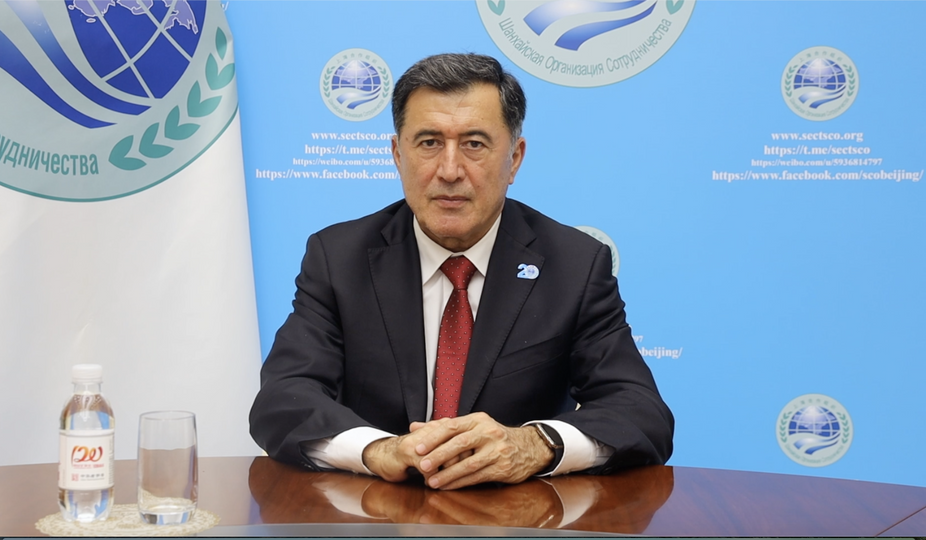On 30 March 2021, Dushanbe was the venue of the Heart of Asia — Istanbul Process 9th Ministerial Conference under the motto, Strengthening Consensus for Peace and Development in Afghanistan.
Delegates from over 40 countries, donors, specialised international and regional organisations were invited to attend. They discussed topical matters concerning international and regional affairs and focused on advancing the domestic Afghan peace settlement, efforts to combat international terrorism and illegal drug trafficking and to help restore the country by strengthening trade and economic and humanitarian ties.
President of the Republic of Tajikistan Emomali Rahmon and President of the Islamic Republic of Afghanistan Ashraf Ghani attended the opening ceremony.
Foreign Minister of Tajikistan Sirodjidin Muhriddin and Foreign Minister of Afghanistan Mohammad Haneef Atmar greeted participants at the main session. India's Minister of State for External Affairs Subrahmanyam Jaishankar, Foreign Minister of Kazakhstan Mukhtar Tleuberdi, Foreign Minister of China Wang Yi, Foreign Minister of Kyrgyzstan Ruslan Kazakbayev, Foreign Minister of Pakistan Shah Mahmood Qureshi, Foreign Minister of Russia Sergei Lavrov and Foreign Minister of Uzbekistan Abdulaziz Kamilov also took the floor.
SCO Secretary-General Vladimir Norov also addressed the delegates via videoconference.
Mr Norov praised Tajikistan's chairmanship of the Istanbul Process that has now ended and which coincided with its chairmanship of the SCO.
It was noted that the early resolution of the situation in Afghanistan was a highly important factor of strengthening security as well as ensuring stability and prosperity in the SCO region.
Mr Norov noted that the Organisation's member states believed that there was no alternative to resolving the conflict in this country through political dialogue and by implementing an all-inclusive peace process by the people of Afghanistan themselves and under the guidance of their compatriots.
In this connection, he voiced support for intra-Afghan talks in Doha and expressed hope that their continuation would eventually help reach mutually acceptable agreements meeting the interests of all Afghan socio-political and ethnic groups.
He voiced the SCO's readiness to continue assisting Afghan partners in the search for ways of ensuring stable peace and national accord in their country. In this context, he noted the constructive significance of the 18 March 2021 meeting of the extended Troika comprising representatives from Russia, China, the United States and Pakistan in Moscow.
The SCO Secretary-General called for expanding cooperation between all the concerned states and international organisations, with the UN's central coordinating role, in order to stabilise the situation in Afghanistan.
In the context of fulfilling the decisions of the 10 November 2020 SCO Heads of Government Council (HGC) Meeting, he underscored the need for more active cooperation with official Kabul for implementing the common road map of subsequent actions. In this connection, he noted the positive nature of the initiative of Tajikistan's chairmanship of the SCO to hold the fourth meeting of the
SCO-Afghanistan Contact Group this coming summer.
It was noted that the parties will continue to focus on matters linked with the neutralisation of terrorist threats in the country's border regions and implementing effective measures to combat illegal drug production and trafficking.
It was noted that the parties will continue to focus on matters linked with the neutralisation of terrorist threats in the country's border regions and implementing effective measures to combat illegal drug production and trafficking.
They will also prioritise the involvement of Afghanistan's neighbours in trade and economic processes in the SCO region, including in the context of the implementation of joint infrastructure projects.
Following the conference, the delegates passed the Dushanbe Declaration the aimof which is to coordinate and consolidate multilateral efforts for attaining peace in Afghanistan and ensuring the country's rehabilitation.
The Heart of Asia — Istanbul Process is a regional initiative of the Islamic Republic of Afghanistan and the Republic of Turkey. It was launched on 2 November 2011 by holding an international conference on Afghanistan at the level of foreign ministers in Istanbul. Today, the Istanbul Process involves 15 states. An additional 16 countries and 12 international organisations support this initiative.
Earlier, similar ministerial conferences, part of this mechanism, were held in Istanbul (2011 and 2019), Kabul (2012), Almaty (2013), Beijing (2014), Islamabad (2015), Amritsar (2016) and Baku (2017).
